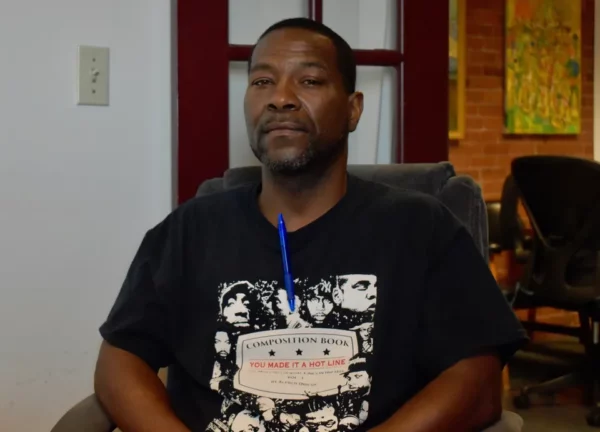In what could be defined as a “tangled title foreclosure,” Alan Tilley is fighting to save the home he shared with his mom, Edythe Tilley, up until her death in 2014. The social worker and Navy veteran had never secured home ownership of the 766 Orchard St. property in New Haven, Connecticut.

After his mother died, Tilley continued to pay the Wells Fargo mortgage for years, but struggled to keep up with the bills. He had to file for bankruptcy and owes the bank more than $68,000. Since the bank filed foreclosure on the home in 2020, Tilley said he’s gotten countless letters and calls from out-of-state investors looking to buy the property, which he finds quite rude.
What is a “Tangled Title” Foreclosure
Tilley’s case is a “tangled title” foreclosure. The home he is living in was passed on to him without a deed with a clear owner. According to the Massachusetts Institute of Technology, this usually happens if the original homeowner dies without a will. If there is no will, the “heir” will have a hard time to prove rightful ownership of the home.
But in some cases, a will does not protect the property; tangled titles can also occur in cases involving deed fraud and rent-to-own agreements.
“A tangled title is a property title that does not accurately reflect the present homeowner’s claim to the home. A tangled title happens when someone owns part/all of the house, but doesn’t have their name on the deed,” according to Philadelphia Legal Assistance.
How Tangled Titles Happen
A tangled title can happen when a person whose name is on the deed passes away, and after that some of his or her relatives continue to live in the home without adding their name to the deed.
Tangled titles also happen through land installment sales contracts — or rent-to-own agreements. With some rent-to-own agreements you may be paying into buy the house but you have not been put on the deed or won’t be until until you have paid the full purchase price. As a result, the property title can become tangled if the seller refuses to put your name on the deed even after you have paid the full amount, according to Philadelphia Legal Assistance.
Lastly this can happen when there has been deed theft, a growing problem. Someone can take a house they have no claim to and change the property title to their name, without the true owner’s consent and/or knowledge.
Protect Yourself From Tangled Titles
Make sure you and your family members have done estate planning that spells out what should happen with the property. If your property has become tangled, there is legal recourse and there are also various nonprofit organizations that offer free legal services for tangled titles.
Tilley Is Running out of Options
Since he hasn’t secured official ownership of the home, Tilley also can’t rely on the resources available to veterans and homeowners struggling with keeping their homes. He has, however, been able to get help with food and utilities.
The home is special, not just because it belongs to his mother, but because it was one of many homes built to help stabilize and build homeownership in the community. Because of the support of Beulah Heights Pentecostal Church, families could acquire these homes with the guarantee that they would have ownership for at least 20 years.
Legally, Tilley is the administrator of his late mother’s property, and the housing court has barred him from mediating with the mortgage company because of his legal status. Tilley and his mother were extremely close and talked about everything, but the status of the home after her death was a conversation that slipped through the cracks of their Orchard Street home.
When Edythe Tilley first bought the home and placed her name on the deed in 2002, it was the first property she owned. A year later, Tilley moved in with his mother.
“Me and my mom, we’ve been through thick and thin. I left the nest, but I was always there,” Tilley told the New Haven Independent. ”My mom was cool-natured, mild-mannered. She spoke her mind. She would tell me what she thought was right, and I would heed her.”
Edythe Tilley suffered from lung disease, which eventually became full-blown bronchitis and chronic obstructive pulmonary disease, which kept her in the house even more. But there is hope for Tilley and his home. He can go to the probate court process and make an official claim to his mother’s property.




